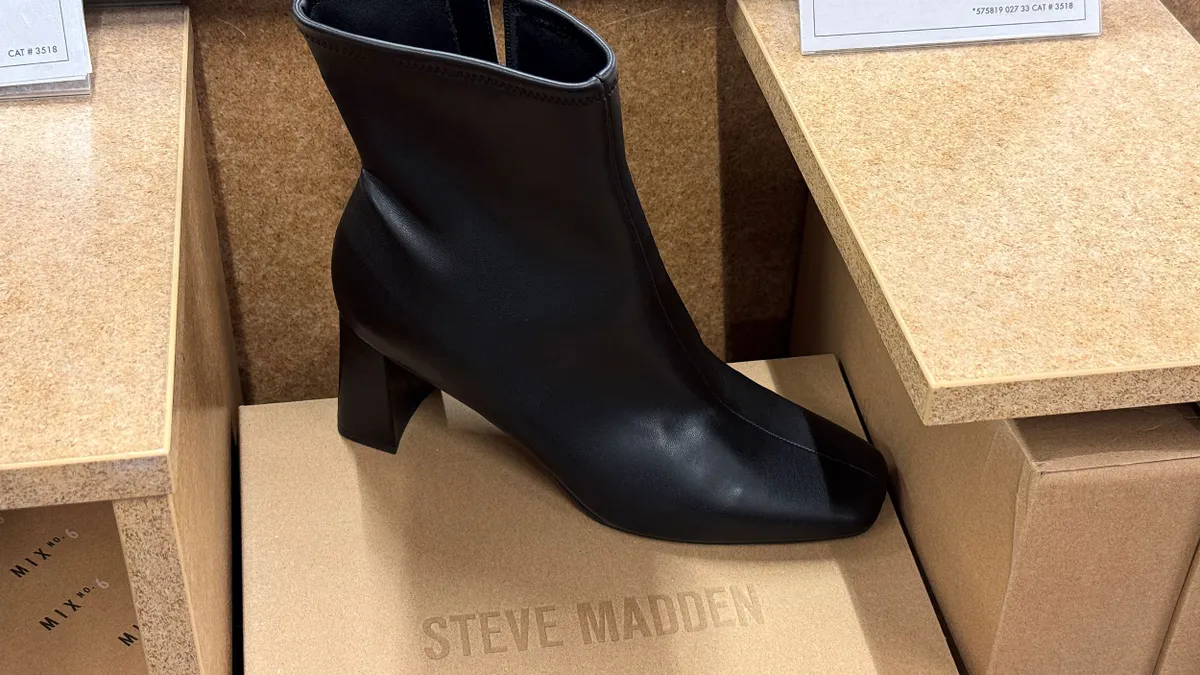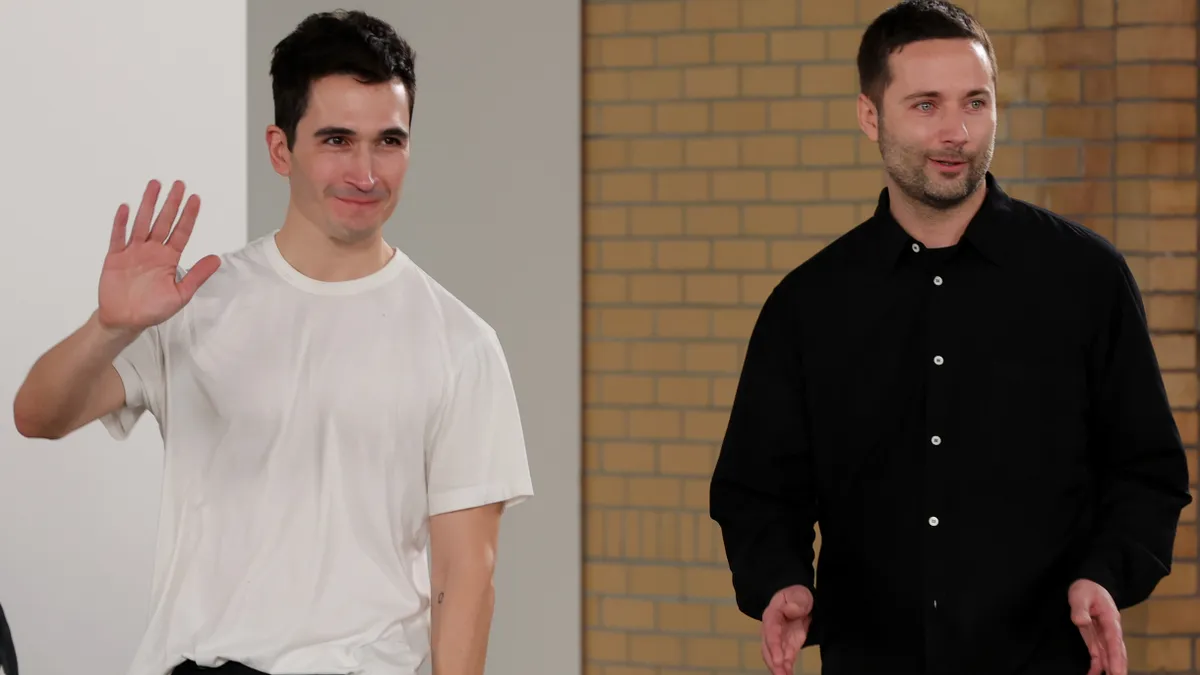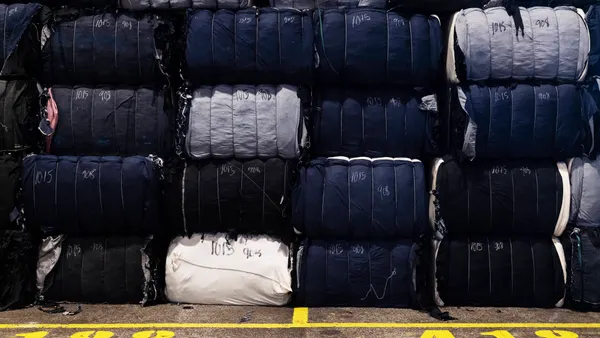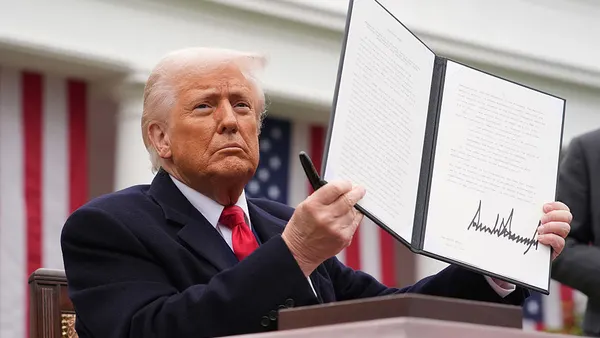The topic of tariffs loomed over Steve Madden’s earnings call on Wednesday, with company executives citing second quarter challenges including canceled wholesale orders, reduced open-to-buys and shipment delays.
Steven Madden is still focused on diversifying its sourcing base, an initiative it started after President Donald Trump was reelected last November. In its first quarter, the company said it planned to only source a mid-teens percentage of goods from China.
However, on Wednesday, Chairman and CEO Edward Rosenfeld said the company moved some of its production back to China for the fall because “we felt it would be difficult to ensure on-time delivery, appropriate product quality and/or reasonable pricing” if it sourced from another country.
For fall 2025, Steve Madden expects to source about 30% of its imports from China, down from 71% a year ago, per the call. Rosenfeld said Steve Madden’s China sourcing percentage is currently in the low 60s. He attributed the change to shifting tariff rates between the U.S. and China, which at one point were as high as 145%.
Steve Madden previously planned to move some of its China sourcing to Brazil, but following Trump’s announcement of a 40% tariff on the South American country, the company plans to “wait and see what happens.”
“Not just for Brazil, but for a lot of countries that we work with,” Rosenfeld said.
To make up for some of the tariff impact, Steve Madden has selectively raised prices for wholesale customers and individual consumers, with price increases averaging about 10%.
So far, customers have been receptive to price increases, but Rosenfeld cautioned it was still early, and the company would continue to monitor consumer demand.
Tariffs have always been a particular challenge for Steve Madden. Unlike some other apparel and footwear companies, it used to source about 80% of its products from China. Mexico, another target for Trump tariffs, also was a large portion of Steve Madden’s sourcing base, Fashion Dive previously reported.
Despite these challenges, Steve Madden still logged a revenue increase for Q2 with $559 million, a 6.8% year-over-year increase. This was mainly due to the newly acquired Kurt Geiger brand. Without Kurt Geiger, revenue would have fallen 10%, according to Jefferies analysts led by Corey Tarlowe.
Steve Madden reported a Q2 loss from operations of $40.3 million or a 7.2% decrease of revenue, compared to income from operations of $46.9 million last year.
“Our financial performance in the second quarter was not up to our usual standards as we grappled with the impact of tariffs, and we know the path forward will continue to be bumpy in the near term,” Rosenfeld said.
The largest tariff-related impact was seen in mass and off-price channels. Rosenfeld said that about 95% of the wholesale revenue shortfall of the business came from these segments.
Rosenfeld declined to give guidance for the company’s performance expectations for the next quarter or the full year, but said the tariff situation would make a “significant impact” on Q3 and would hopefully improve by Q4.
Steve Madden’s overall wholesale business fell 6.4% year over year. Without Kurt Geiger, it would have fallen 12.8%. DTC revenue rose 43.3%, or fell 3% excluding Kurt Geiger.
“While the systems migration is fully behind them, the tariff-related demand impact is likely to remain at least through the end of the year,” Tom Nikic, managing director of Needham & Company, said in a client note.
In addition to Kurt Geiger and its namesake brand, Steve Madden also owns Almost Famous, Dolce Vita and Betsey Johnson.











